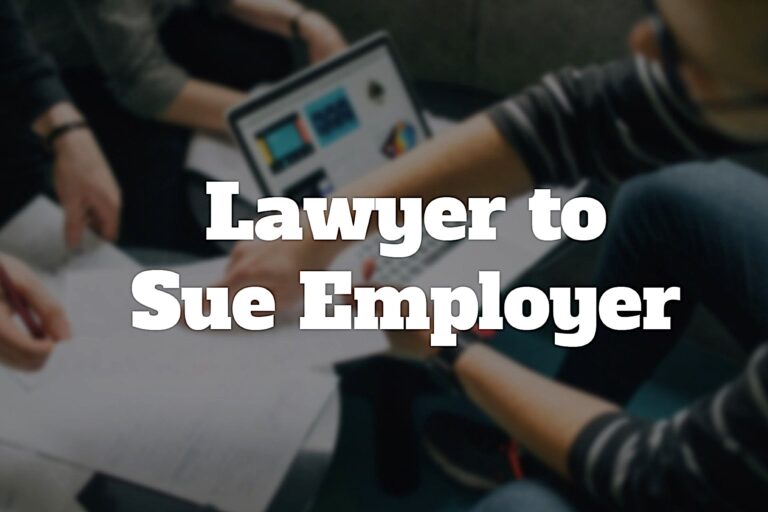If a coworker is slandering you, it can seriously affect your professional reputation and work environment. Understanding your legal options for addressing defamation is essential for protecting yourself. This article will explain what constitutes slander, how to gather evidence, and the steps you can take to seek legal recourse against defamatory statements.
Defining Defamation
Defamation refers to any false statement made about a person that damages their reputation. It encompasses both slander, which involves spoken statements, and libel, which involves written or published statements. For a statement to be legally considered defamatory, it must be false, as truth is a defense against defamation claims. Additionally, the statement must be made to someone other than the person it’s about, meaning it has to be published or communicated to a third party.
In the workplace, defamation can occur through casual conversations, emails, or even official documents. It is important to differentiate between genuine criticism and defamatory remarks. Defamation does not cover opinions or subjective views but strictly false statements presented as facts that can harm an individual’s reputation. Understanding these distinctions helps in identifying whether an incident qualifies as defamation and determines the appropriate legal steps to address it.
Elements of a Defamation Claim
To pursue a defamation claim, certain key elements must be established. These elements form the basis of any legal action for defamation and include:
- False Statement: The statement made must be untrue. If the statement is based on factual evidence or is a truthful report, it does not constitute defamation.
- Publication to a Third Party: The defamatory statement must be communicated to someone other than the person it is about. This can include spoken words, written documents, or online posts.
- Harm to Reputation: The statement must have caused harm to the individual’s reputation, leading to damages such as loss of job opportunities, personal relationships, or public respect.
- Fault: The claimant must prove that the statement was made with some level of fault. This can be either negligence (failure to exercise reasonable care) or actual malice (knowledge of the statement’s falsity or reckless disregard for the truth).
Each of these elements plays a crucial role in determining whether a defamation claim is valid. Understanding them is essential for assessing whether the situation qualifies for legal action and for building a case that addresses all necessary legal components.
Impact of Defamation on the Victim
| Type of Impact | Description | Examples |
| Emotional Impact | Psychological distress caused by defamation. | Anxiety, depression, loss of self-esteem. |
| Professional Impact | Negative effects on career opportunities and workplace standing. | Loss of job, diminished career prospects, strained relationships with colleagues. |
| Financial Impact | Economic consequences resulting from defamation. | Loss of income, legal fees, potential damages awarded in a lawsuit. |
Defamation can significantly affect the victim’s emotional well-being, causing distress, anxiety, and a blow to self-esteem. The continuous stress from false statements can lead to long-term psychological issues, impacting the victim’s overall mental health and quality of life.
Professionally, defamation can lead to severe repercussions. It might result in loss of employment, hinder career advancement, and damage professional relationships. Colleagues and employers might view the victim in a negative light, which can impact job performance and career growth.
Financially, the consequences of defamation can be considerable. The victim may face income loss due to job termination or reduced job prospects. Additionally, pursuing legal action involves legal fees and potentially significant financial settlements if damages are awarded. Understanding these impacts helps in addressing the full scope of damage caused by defamation and underscores the importance of seeking redress.
Gathering Evidence
To build a strong case for defamation, it is crucial to gather comprehensive evidence that supports your claim. Here’s how you can effectively document and collect evidence:
- Recording Statements: If defamation occurs verbally, ensure that you make a record of what was said. This can be achieved through written notes or audio recordings if legal in your jurisdiction.
- Collecting Witness Accounts: Identify and obtain statements from individuals who witnessed the defamation. Witnesses can corroborate your account and provide additional perspectives on the impact of the defamatory statements.
- Preserving Written Records: Gather and preserve any written evidence of the defamation. This includes emails, text messages, social media posts, or any other form of written communication that contains defamatory content.
- Documenting Impact: Keep a record of how the defamation has affected you. This includes documenting any changes in your professional life, such as job loss or reduced career opportunities, as well as any emotional distress or financial repercussions.
- Obtaining Expert Opinions: In some cases, obtaining expert testimony on the impact of defamation on your reputation or mental health may strengthen your case.
Effective evidence collection is essential for substantiating a defamation claim and can significantly impact the outcome of legal proceedings. By thoroughly documenting all relevant details, you ensure that your case is well-supported and that your grievances are properly addressed.
Internal Company Procedures
Before pursuing legal action, addressing defamation through internal company channels can be an effective way to resolve the issue. Here are the steps to follow and considerations to keep in mind:
- Reporting the Incident: Start by reporting the defamation to your company’s Human Resources (HR) department or designated grievance officer. Provide detailed information about the incident, including the nature of the defamatory statements and any evidence you have collected.
- Formal Complaint: Submit a formal written complaint to HR or the appropriate internal body. Ensure your complaint is clear, detailed, and includes all relevant evidence. This documentation will help HR assess the situation and take appropriate action.
- Internal Investigation: The company may initiate an internal investigation to review the allegations. Be prepared to cooperate with the investigation by providing additional information and participating in interviews if necessary.
- Resolution Options: Internal procedures may lead to various resolutions, such as mediation, disciplinary action against the offending party, or corrective measures to address the behavior. Understand the potential outcomes and their implications for your situation.
- Follow-Up: After the investigation and resolution, monitor the situation to ensure that the defamatory behavior does not continue and that any agreed-upon corrective actions are implemented. If the issue persists or if you are unsatisfied with the resolution, consider escalating the matter.
Addressing defamation through internal company procedures can sometimes lead to a quicker resolution and may help maintain professional relationships. However, if the internal process fails to resolve the issue satisfactorily, you may need to explore external legal options.




+ There are no comments
Add yours